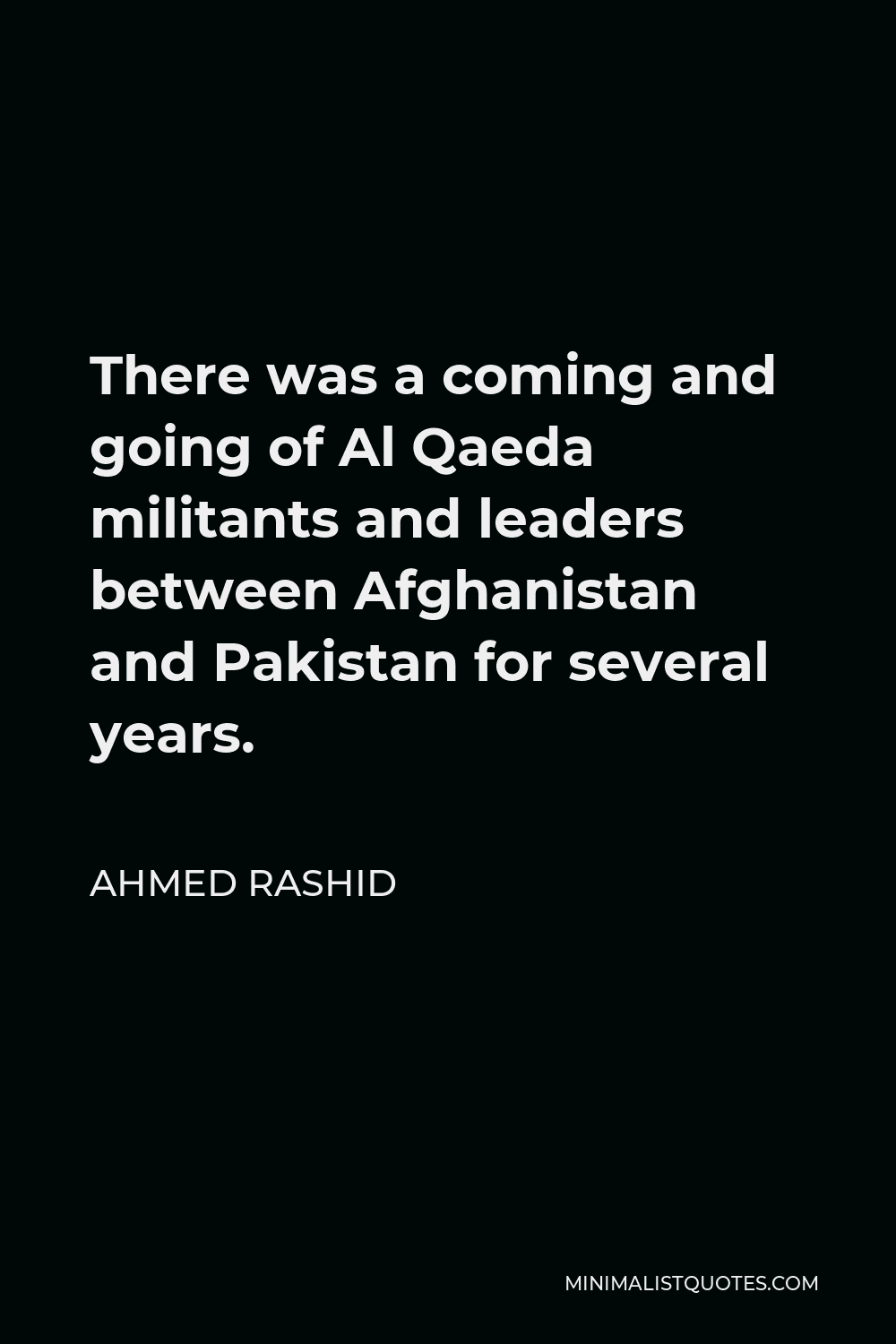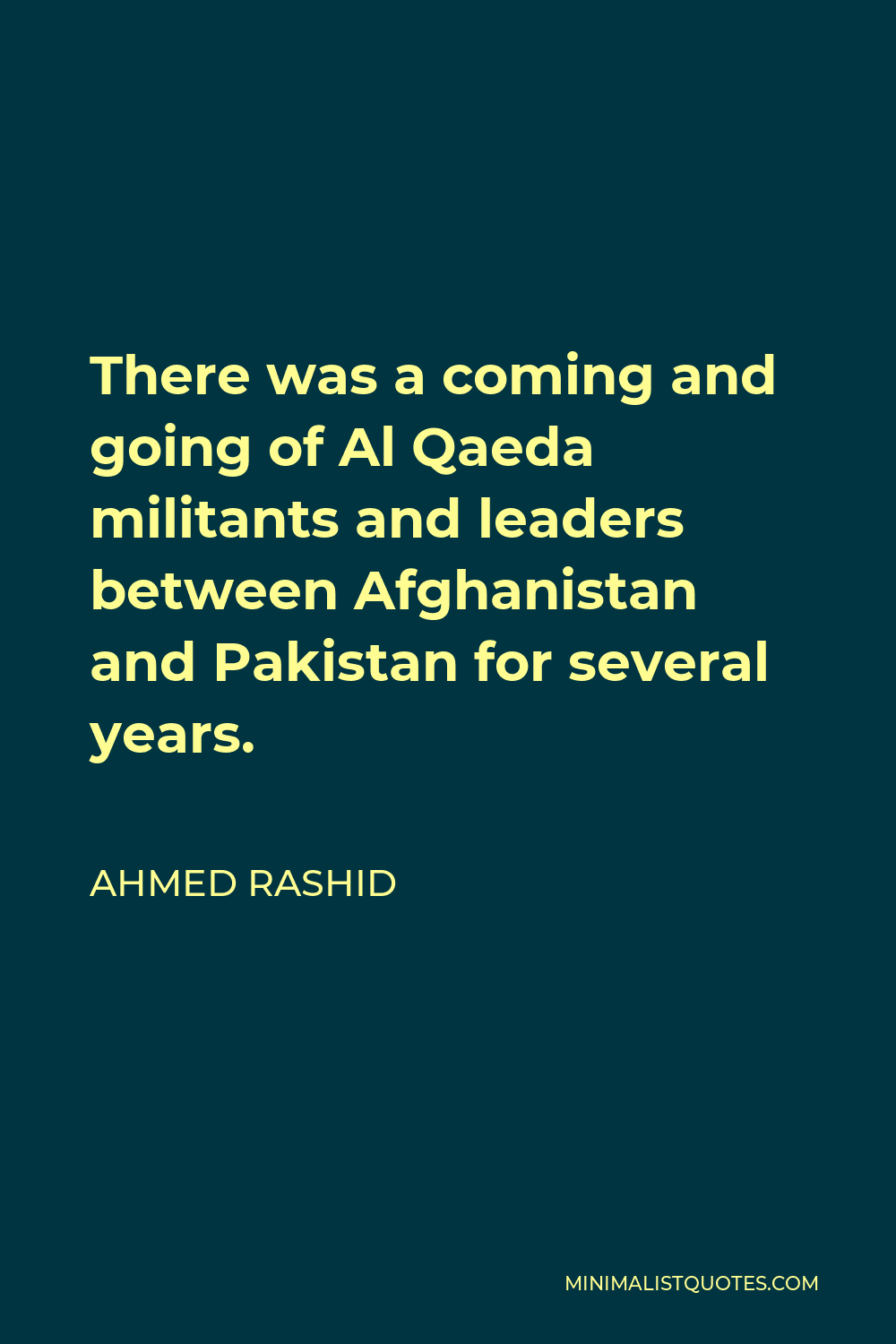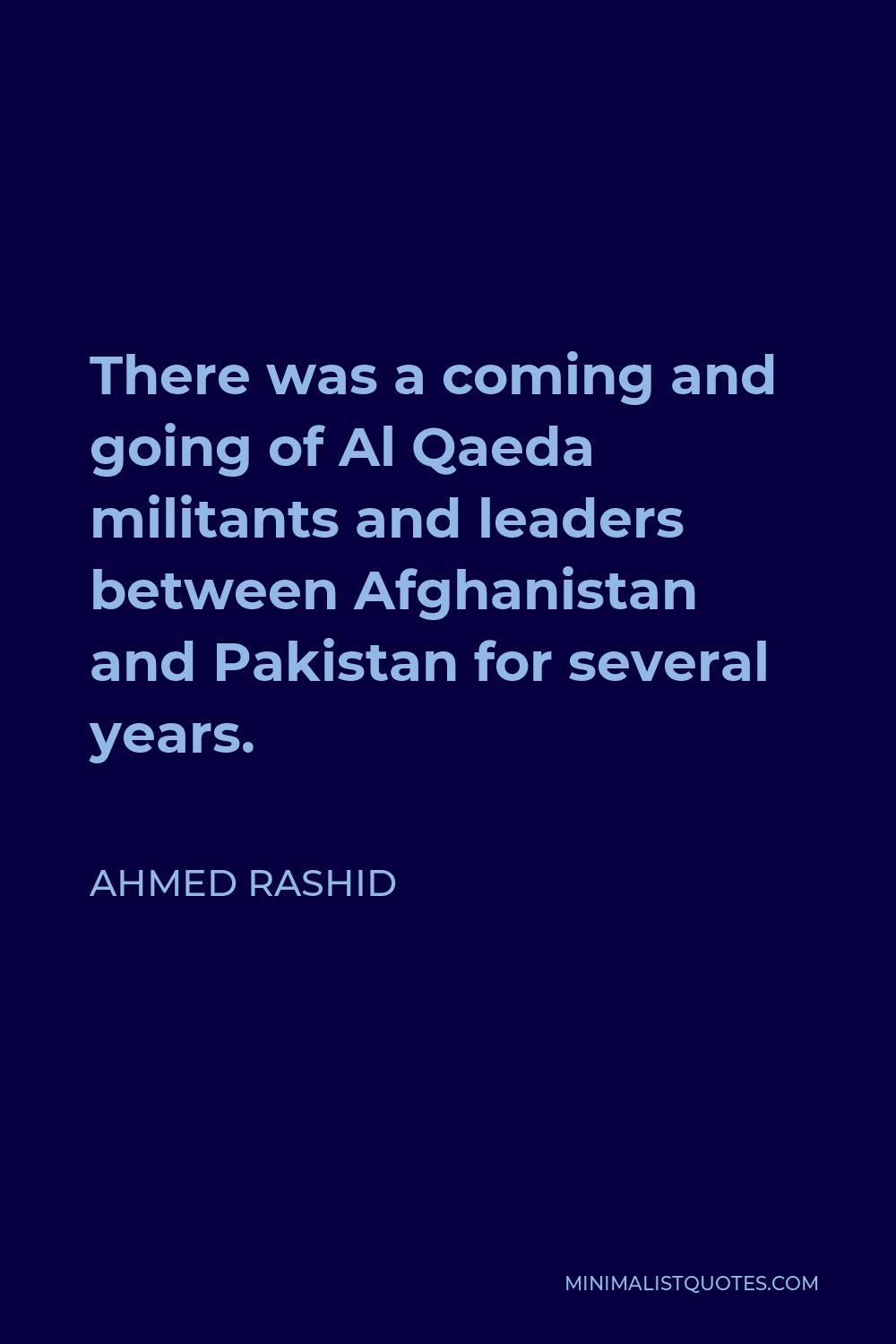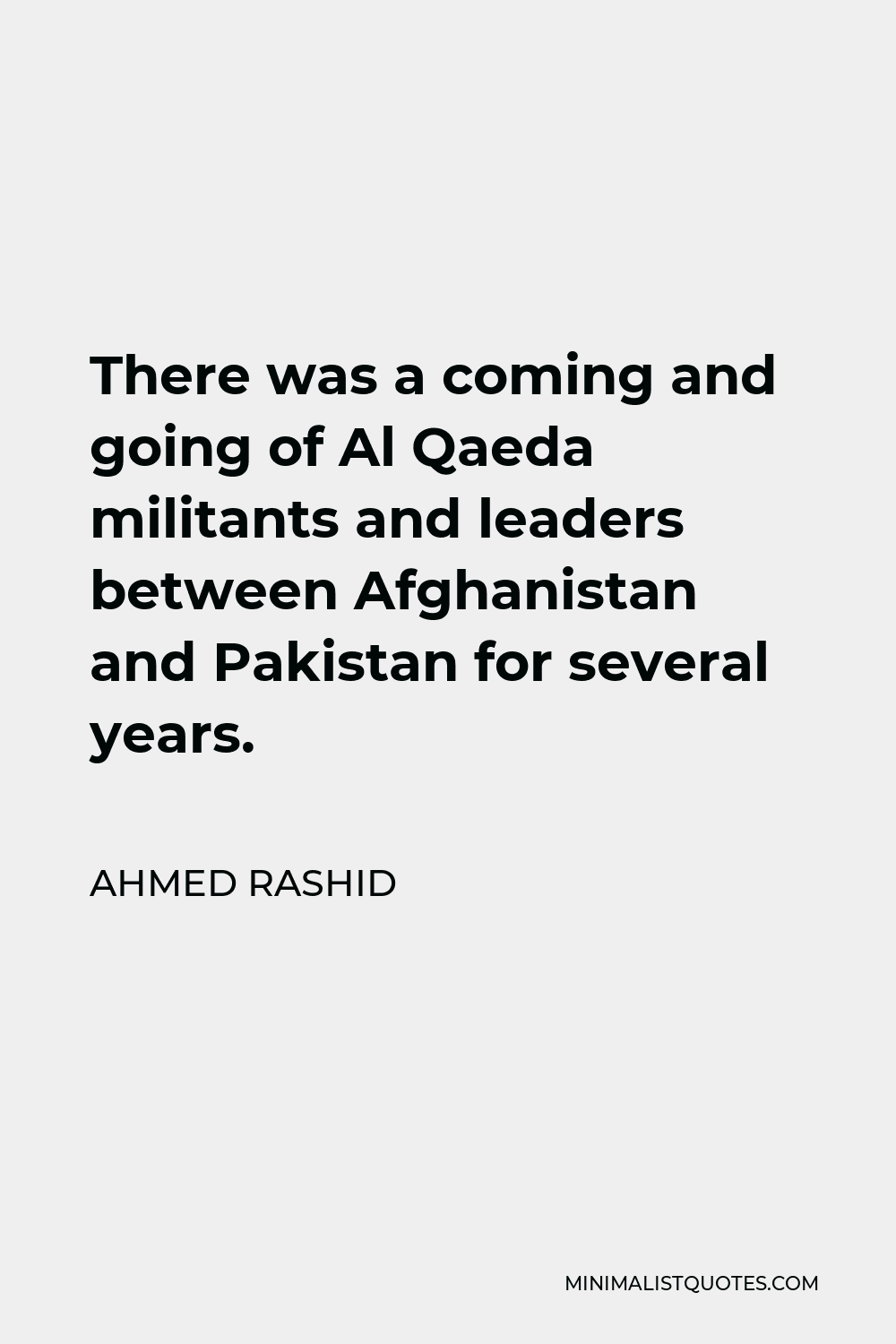George W. Bush and Tony Blair made the promise that they would not tolerate failed states because they could become a haven for terrorists. And today? The number increases.
AHMED RASHIDThere was a coming and going of Al Qaeda militants and leaders between Afghanistan and Pakistan for several years.
More Ahmed Rashid Quotes
-





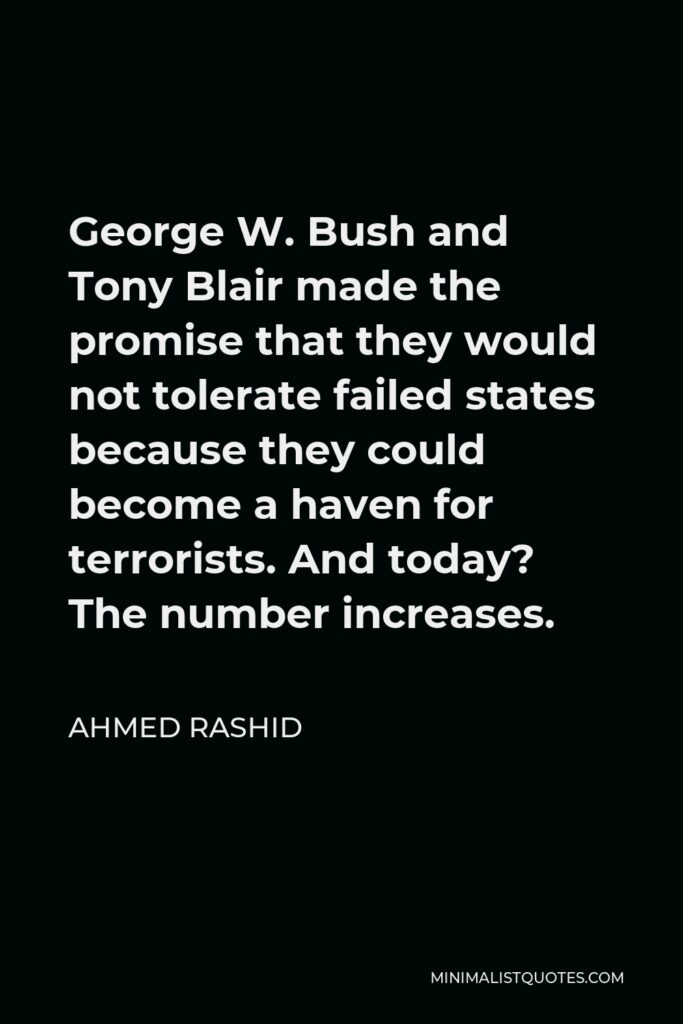

-





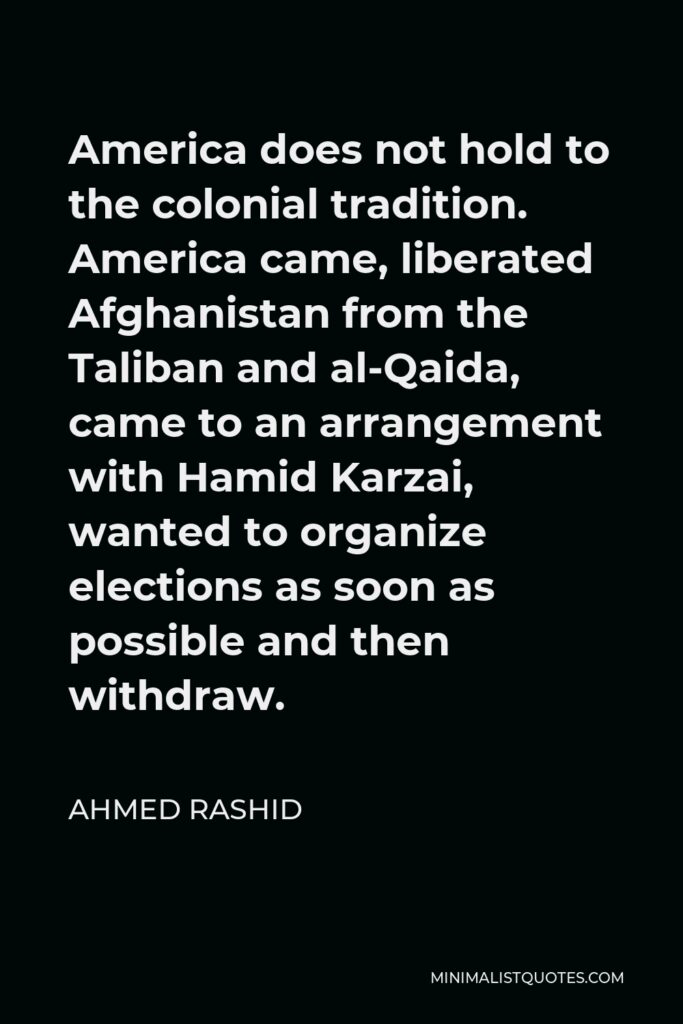

America does not hold to the colonial tradition. America came, liberated Afghanistan from the Taliban and al-Qaida, came to an arrangement with Hamid Karzai, wanted to organize elections as soon as possible and then withdraw.
AHMED RASHID -





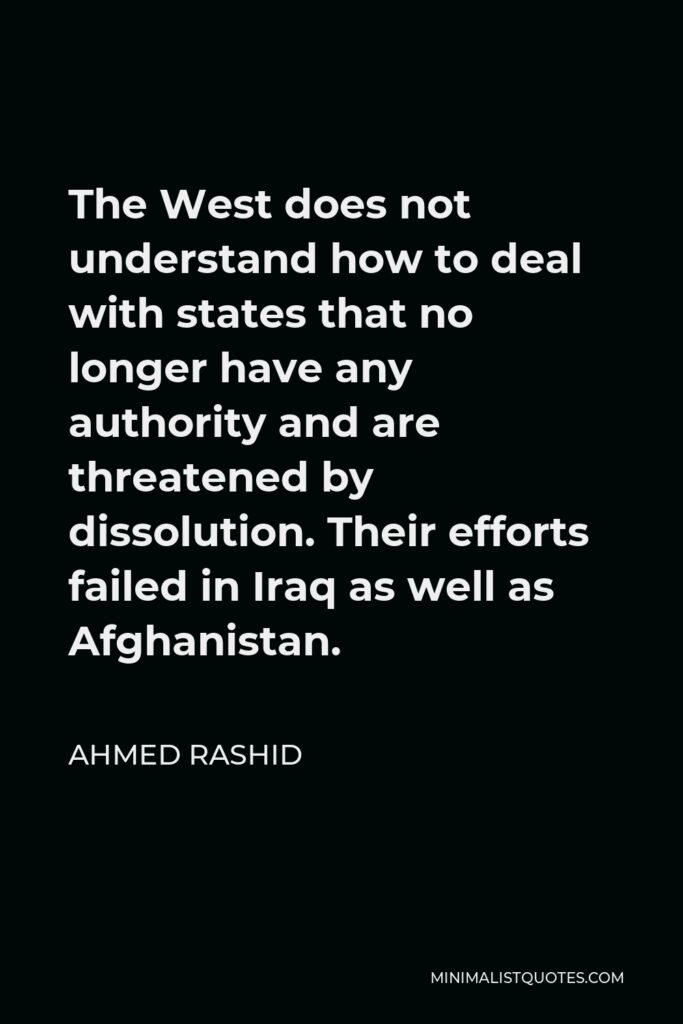

The West does not understand how to deal with states that no longer have any authority and are threatened by dissolution. Their efforts failed in Iraq as well as Afghanistan.
AHMED RASHID -





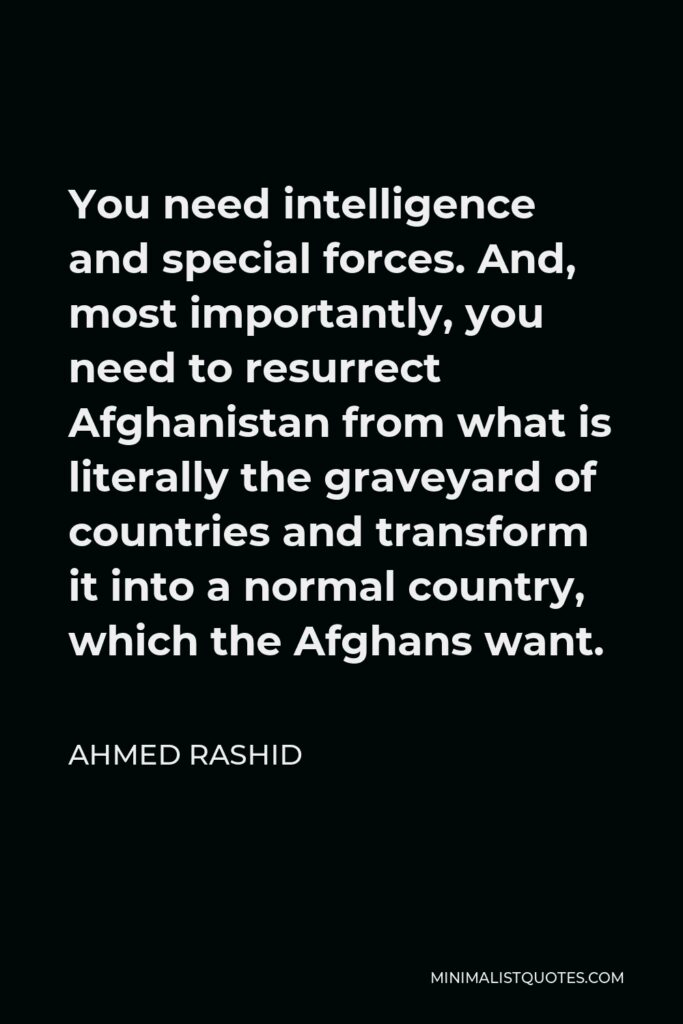

You need intelligence and special forces. And, most importantly, you need to resurrect Afghanistan from what is literally the graveyard of countries and transform it into a normal country, which the Afghans want.
AHMED RASHID -





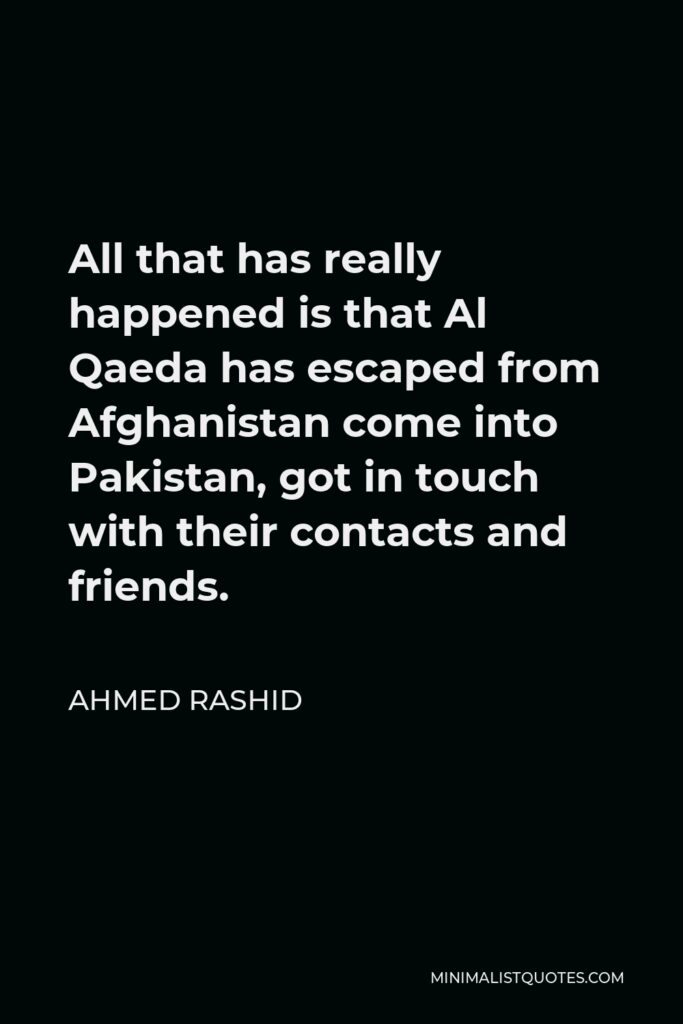

All that has really happened is that Al Qaeda has escaped from Afghanistan come into Pakistan, got in touch with their contacts and friends.
AHMED RASHID -





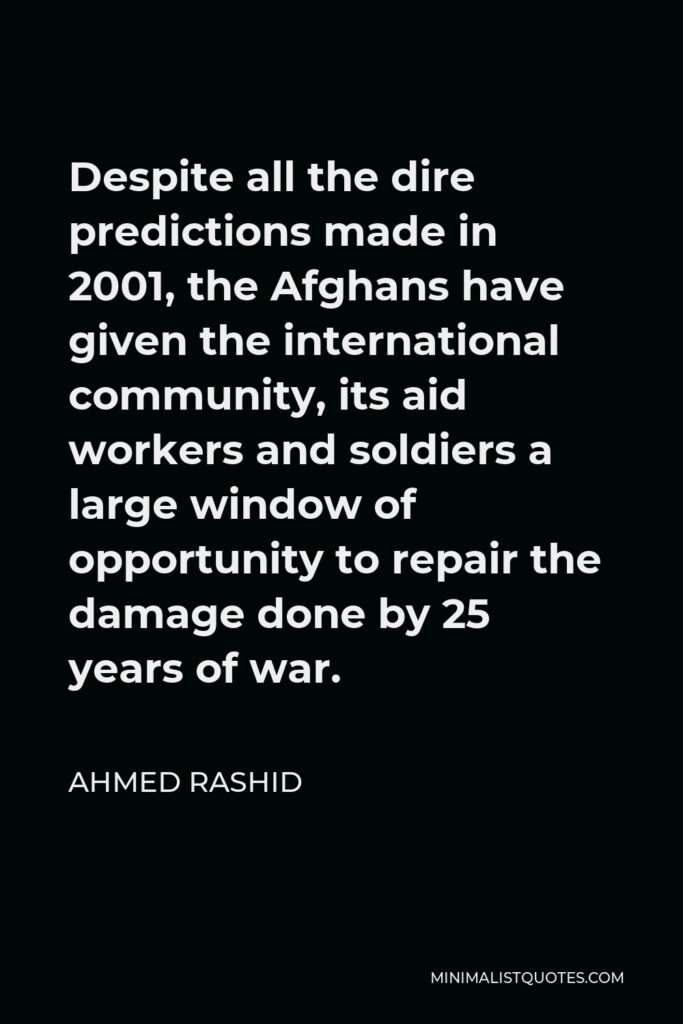

Despite all the dire predictions made in 2001, the Afghans have given the international community, its aid workers and soldiers a large window of opportunity to repair the damage done by 25 years of war.
AHMED RASHID -





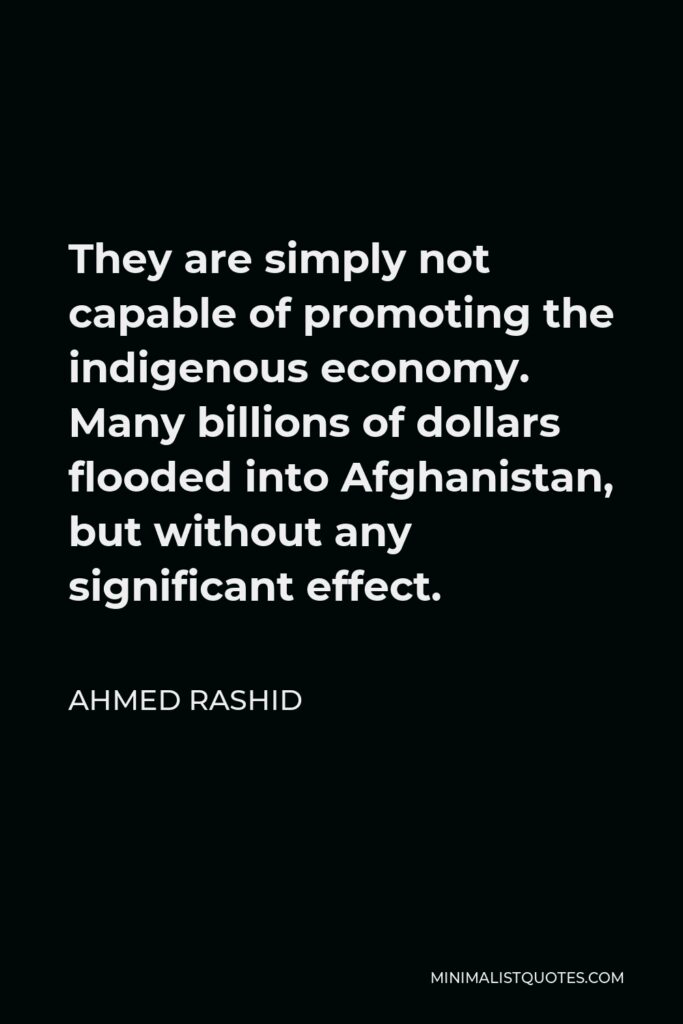

They are simply not capable of promoting the indigenous economy. Many billions of dollars flooded into Afghanistan, but without any significant effect.
AHMED RASHID -





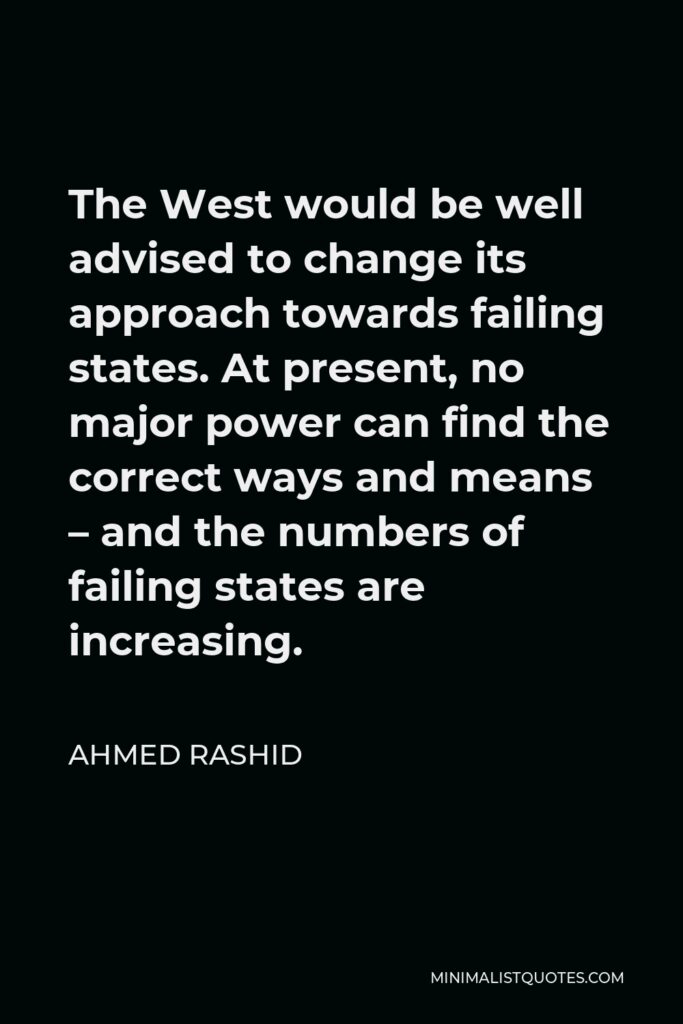

The West would be well advised to change its approach towards failing states. At present, no major power can find the correct ways and means – and the numbers of failing states are increasing.
AHMED RASHID -





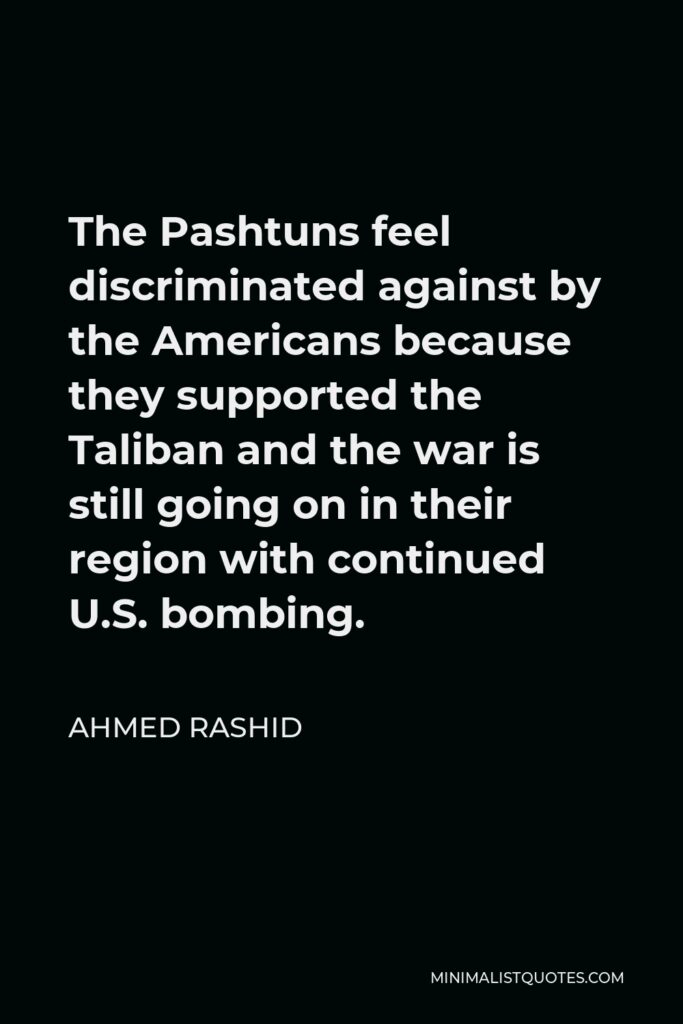

The Pashtuns feel discriminated against by the Americans because they supported the Taliban and the war is still going on in their region with continued U.S. bombing.
AHMED RASHID -





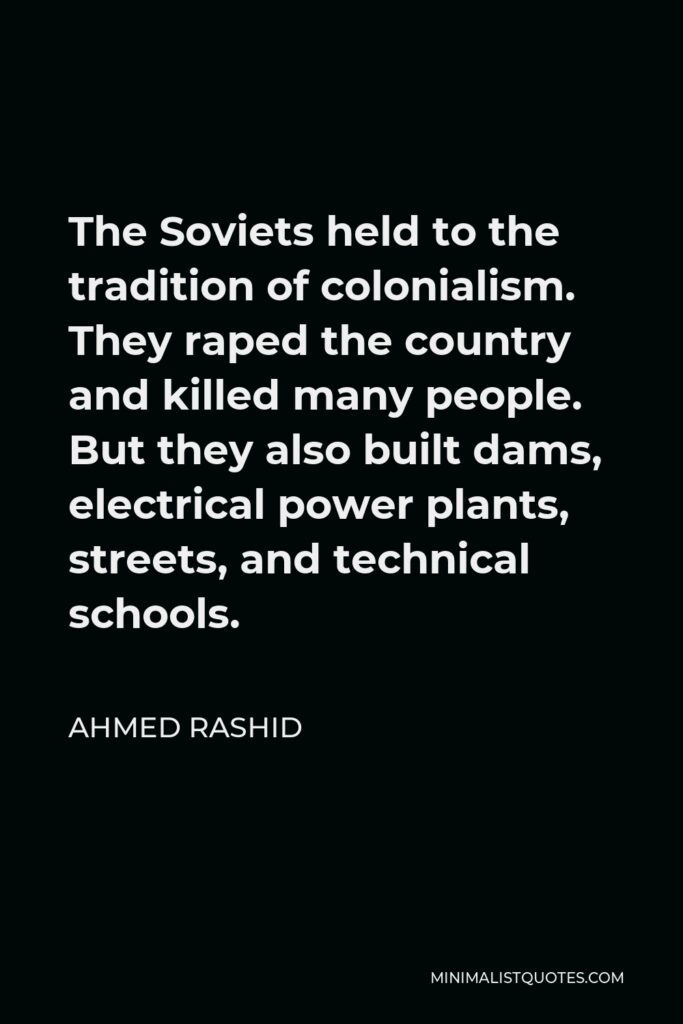

The Soviets held to the tradition of colonialism. They raped the country and killed many people. But they also built dams, electrical power plants, streets, and technical schools.
AHMED RASHID -





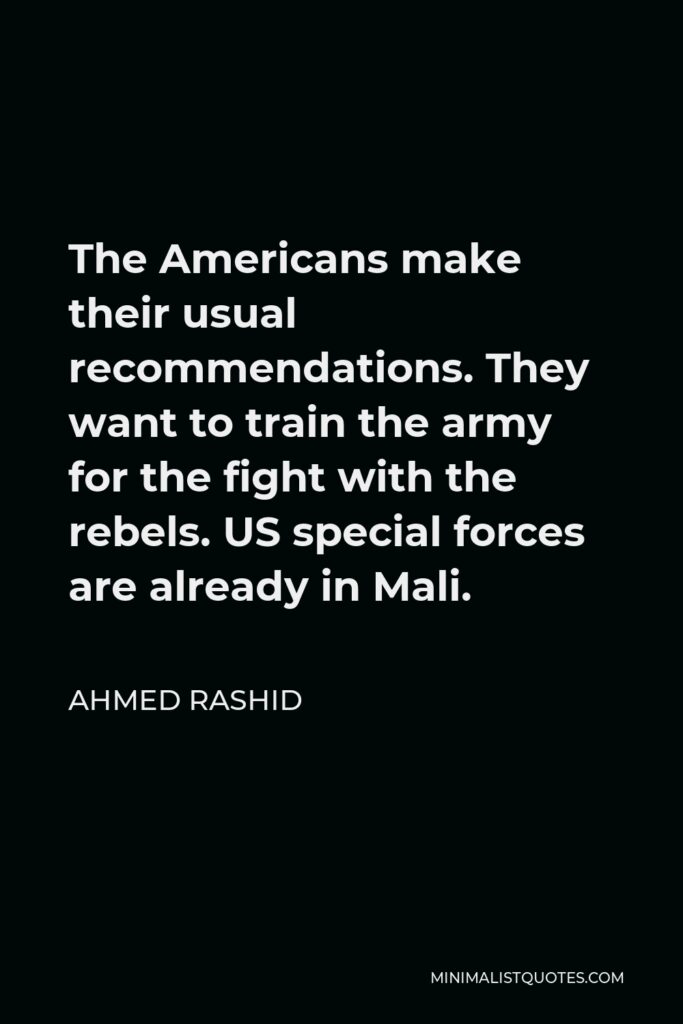

The Americans make their usual recommendations. They want to train the army for the fight with the rebels. US special forces are already in Mali.
AHMED RASHID -





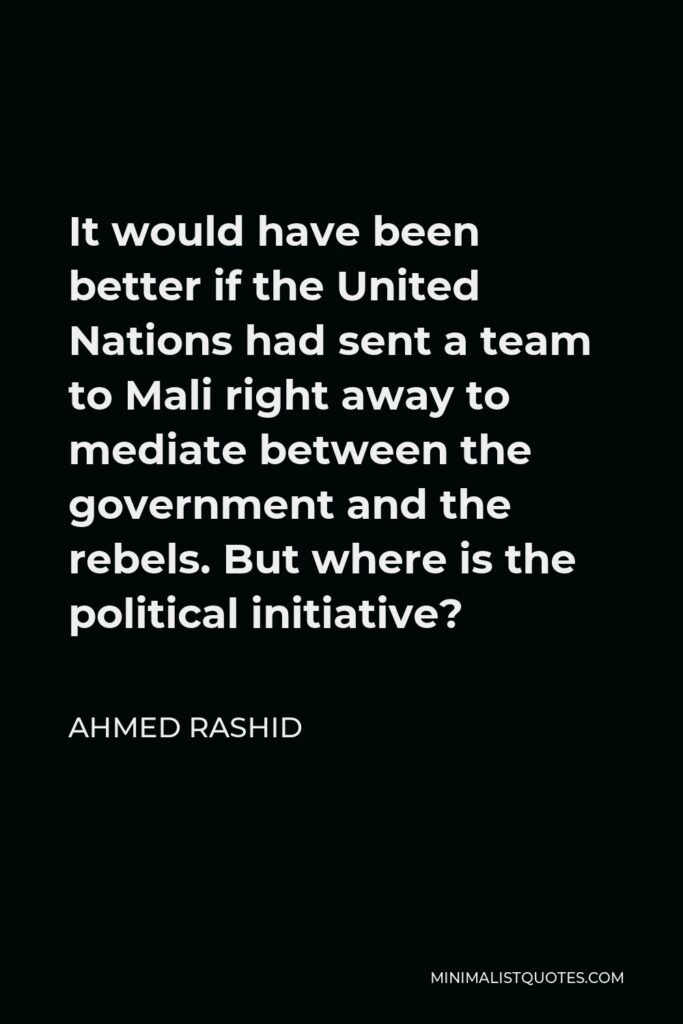

It would have been better if the United Nations had sent a team to Mali right away to mediate between the government and the rebels. But where is the political initiative?
AHMED RASHID -





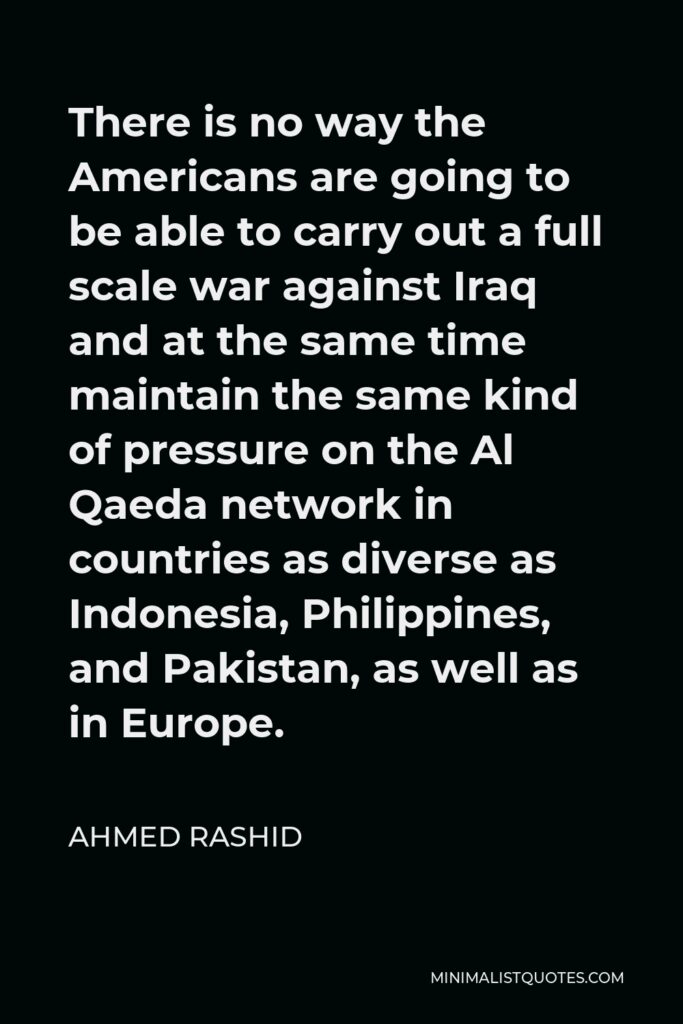

There is no way the Americans are going to be able to carry out a full scale war against Iraq and at the same time maintain the same kind of pressure on the Al Qaeda network in countries as diverse as Indonesia, Philippines, and Pakistan, as well as in Europe.
AHMED RASHID -





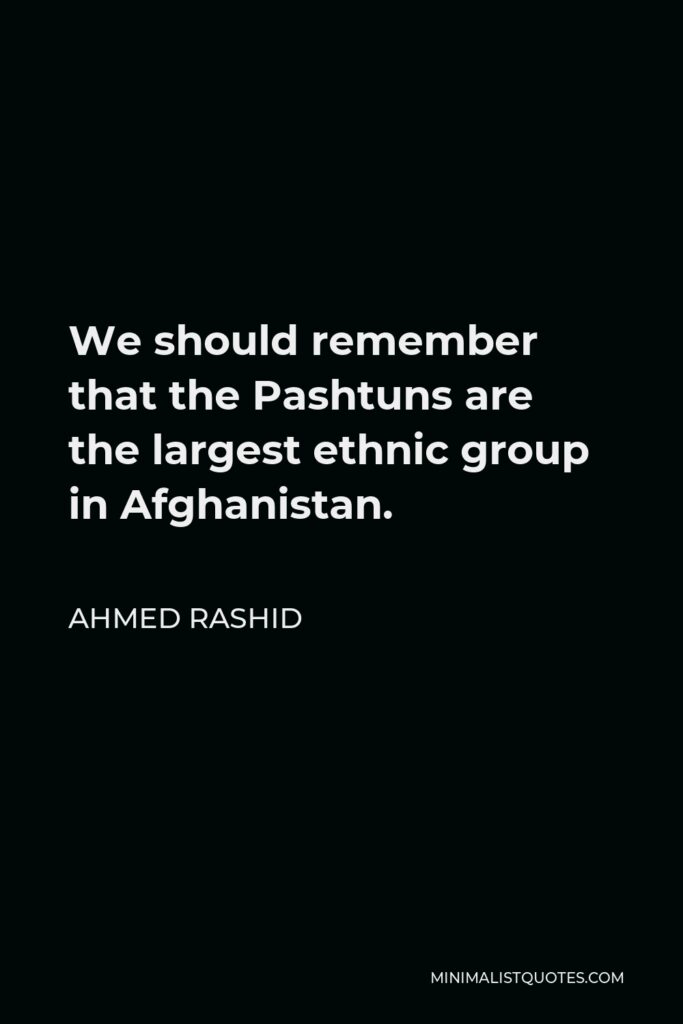

We should remember that the Pashtuns are the largest ethnic group in Afghanistan.
AHMED RASHID -





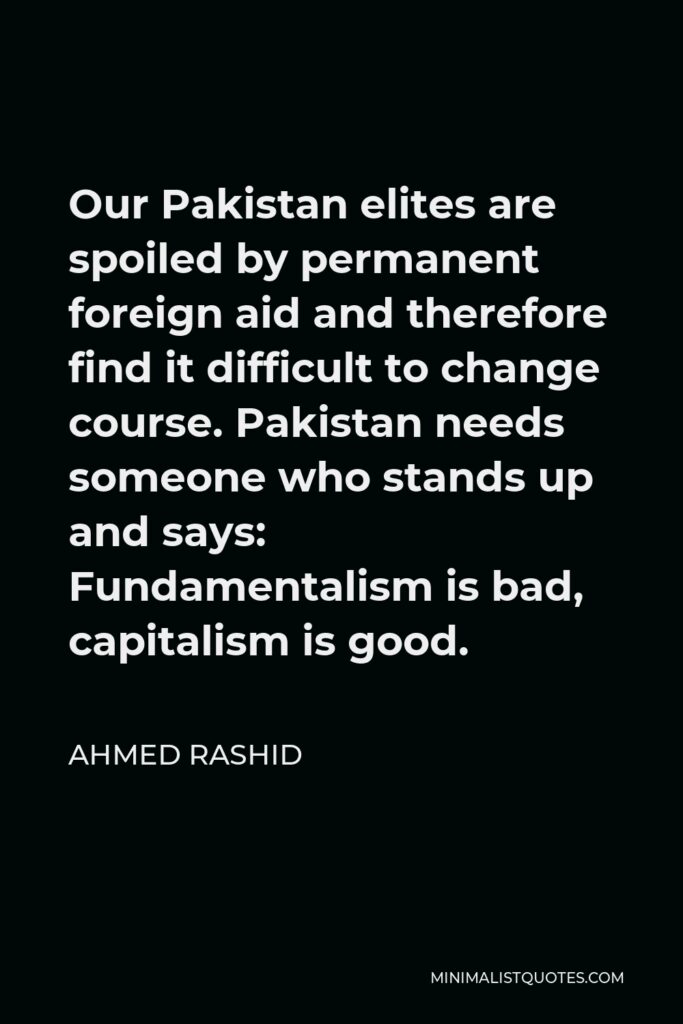

Our Pakistan elites are spoiled by permanent foreign aid and therefore find it difficult to change course. Pakistan needs someone who stands up and says: Fundamentalism is bad, capitalism is good.
AHMED RASHID -





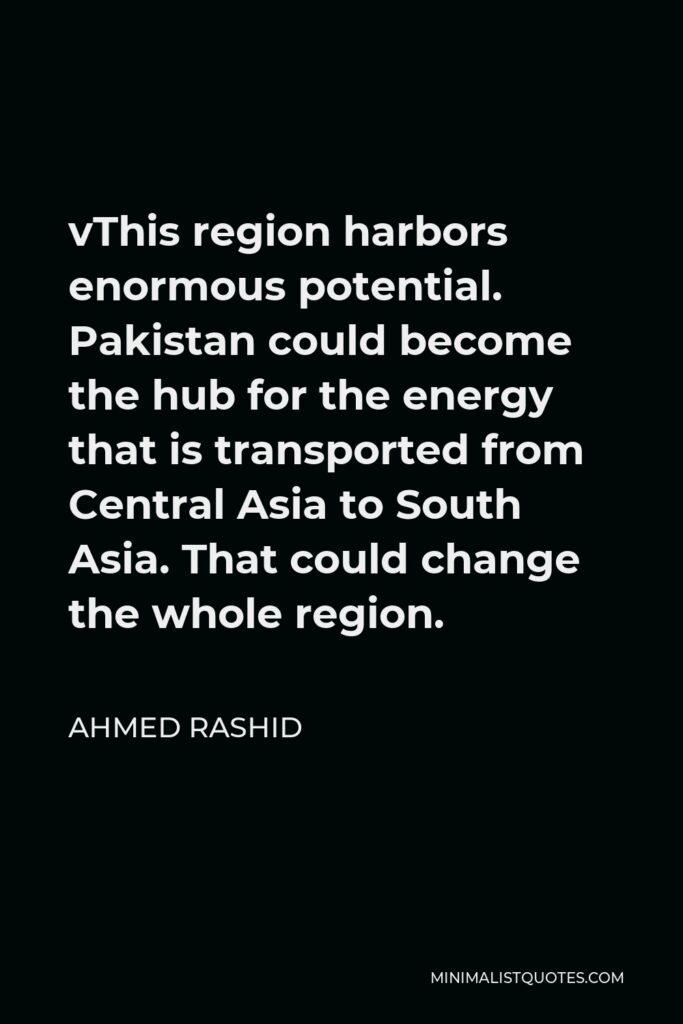

vThis region harbors enormous potential. Pakistan could become the hub for the energy that is transported from Central Asia to South Asia. That could change the whole region.
AHMED RASHID
